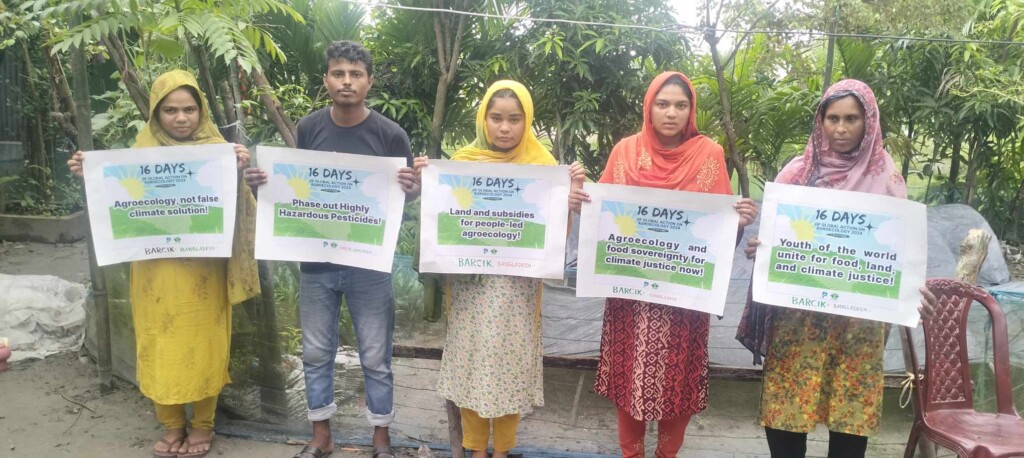From Netrokona by Md. Ohidur Rahman
With the objective to promote and spread the practices of agrocology placing it as one of the solutions to climate change, BARCIK alongside various farmer organizations recently organized different campaigning events titling ‘16-Days of Global Action on Agroecology’ from 1st to 16th October where including farmers, women, indigenous communities and youths people from different walk participated.
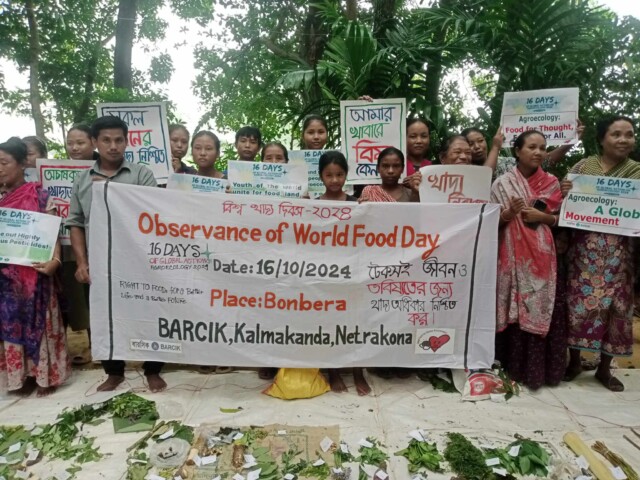
BARCIK’s Netrokona region took different campaign initiatives to raise awareness as well as to state the significance of agroecological practice for combating climate change. BARCIK collaborating with local organizations like Kailati Sheetal Pati Organization, Balua Kanda Rakhalbondhu, Fulpakhi Kishori Sangathan, Milemishe Kaaj Kori Women’s Group in Hasampur, Agrayatra Kishori Sangathan, Bonlata Adivasi Women’s Group in Banbera village of Kolmakanda upazila, and Krishani Sangathan in Paharpur village of Atpara upazila organized those campaigns in different spots of Netrakona district. They organized activities such as safe food fairs, workshops on wild foods, agroecology practices, discussions on climate justice and agroecology, natural farming, family farming, food sovereignty workshops, photo exhibitions, and farmer solidarity events.
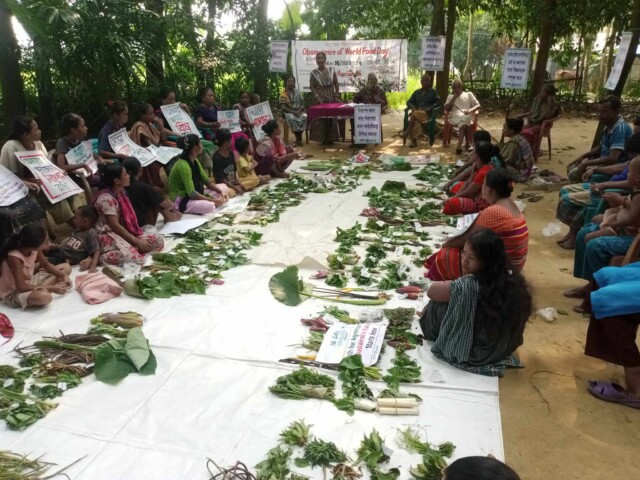
On October 8, Kailati Sheetal Pati Organization hosted a discussion, photo exhibition, and seed distribution event on agroecology. Winter vegetable seeds were distributed to 35 women farmers during the event. On October 9, a workshop on “Food Sovereignty” was held at the Agroecology Learning Center in Balua Kanda village, led by Abul Kalam, a local farmer. During the event, women displayed uncultivated spinaches and vegetables, local seeds, and safe foods and shared their favorite dishes, expressing a desire to grow them at home. Seeds like gourds, beans, red spinach, radish greens, and amaranth were distributed among 30 women in the village.
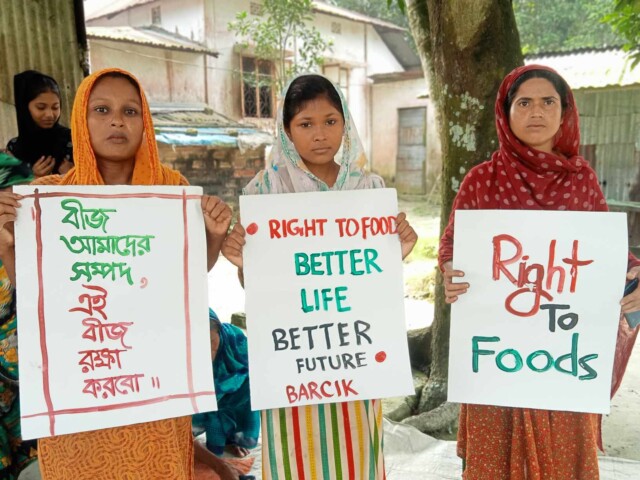
On the other hand, on October 13, rural youth and women gathered in Chandro Dinga village, standing in sandy soils of disaster-prone areas, to discuss food production challenges faced by rural farmers due to climate crises. They also held discussions on climate bonds and food rights. On October 15 BARCIK and these local organizations organized marked rural women day with the theme “Agroecology Solves Our Climate Crisis and Ensures Food Security for Rural Youth and Women” organizing a seed distribution and discussion on rural women’s contributions to safe food production.
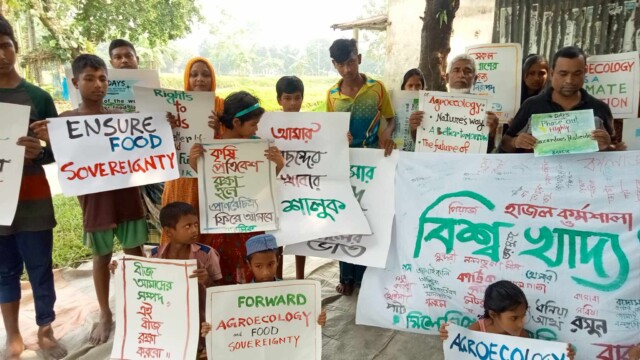
Additionally, during that event 58 indigenous women from north Lengura village of Kolmakanda upazila, received seeds of eight local varieties from BARCIK as part of promoting awareness about safe food. On October 16, local organization named ‘Milameshe Kaaj Kori Women’s Group in Hasampur village organized a hajol-making workshop, food fair, and photo exhibition with BARCIK’s support, celebrating World Food Day under the theme: “Ensuring the Right to Food for a Better Life and Future.” The fair, inaugurated by 75-year-old Khaleda Akhtar from Hasampur, displayed 24 varieties of wild, safe, chemical-free foods, such as helencha, water spinach, telakuchi, arum, and various traditional greens. A hajol display and training session was also organized on that day to help the communities incubating safe poultry eggs.
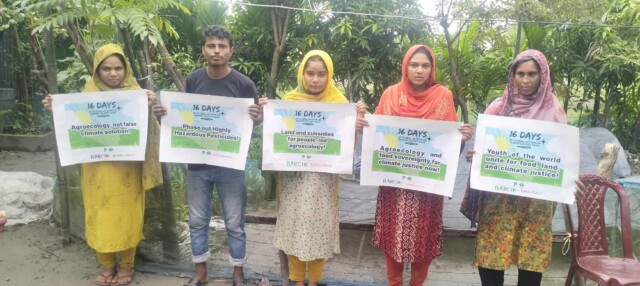
Meanwhile, ‘Bonlata Women’s Group’ with facilitation support from BARCIK organized a food fair showcasing 50 uncultivated foods at 12 stalls, such as wild taro, jungle banana, mushrooms, and edible ferns. Victor Dibra, an indigenous people’s representative commented on the fair, expressing concern about the gradual disappearance of beloved traditional foods. Taslima Sultana, an assistant agricultural officer, emphasized on the need for conserving these natural food sources of foods to ensure everyone’s right to safe food.

